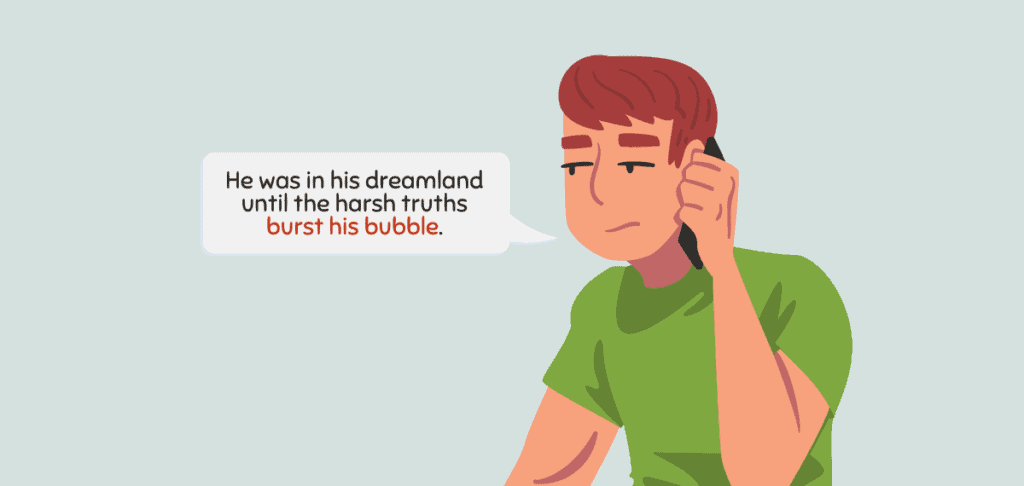I’m about to burst your bubble…or pop your bubble. Wait, which one is it? That’s a great question and one I’m about to break down for you right here in this guide. By the end, you’ll understand the meaning of both phrases and which one to use.
Is It Burst Your Bubble or Pop Your Bubble?

You’re likely to hear both versions tossed around in casual conversations, and both versions are correct. Burst your bubble and pop your bubble mean the same thing. So, choose your favorite—whether you’re a burster or a popper, you’re speaking the lingo right!
Meaning of Burst Your Bubble
When we say burst your bubble, we’re talking about shattering illusions or destroying someone’s idealistic beliefs or fantasies. It’s used when delivering news that might disappoint someone or disprove their previously held notion.
Burst Your Bubble Origin and Etymology

The phrase burst your bubble likely derives from literal bubbles, with the imagery of children playing with bubbles or chewing bubble gum. When a bubble bursts, it disappears, vanishing almost as if it was never there, pretty much like an illusion or false belief when faced with the harsh truth.
Though the exact origin isn’t really clear, it’s widely accepted that the phrase popped into existence in the mid-20th century.
Synonyms for Burst Your Bubble
If you’re looking for ways to say the same thing without the bubble imagery, try these.
- Shatter your illusions
- Rain on your parade
- Disillusion you
- Wake you up to reality
- Disabuse you of the notion
- Set you straight
Burst Your Bubble and Pop Your Bubble Examples in a Sentence

Seeing a phrase in full use usually makes its meaning clearer, so let’s check out some sentences using these phrases.
- Listen, I really hate to burst your little bubble, but the tooth fairy isn’t real, my friend.
- My little sister was living in a fantasy world of her own making until the reality of life came and popped her bubble.
- He was in his dreamland until the harsh truths burst his bubble.
- “I don’t want to burst your bubble, but you really need to study more to pass,” his tutor advised.
- Sorry to pop your bubble, but there’s no such thing as unicorns.
- The fact-checker is always there to burst our bubbles with the truth.
- Katie hates to burst your bubble, Sarah, but Santa Claus is your parents.
- His economic predictions always seem to pop the bubble of stock market enthusiasts.
- “Your idea is innovative, but I have to burst your bubble—there’s no budget left,” the manager said.
- The harsh feedback from her boss burst her bubble about her performance.
Bubble Trouble?
Phew! We’ve journeyed through the soapy sphere of burst your bubble, understanding its ins and outs. And remember, don’t be disheartened when someone tries to burst or pop your bubble. It’s usually a reality check designed to keep us grounded. Keep exploring and enriching your language with our guides.
